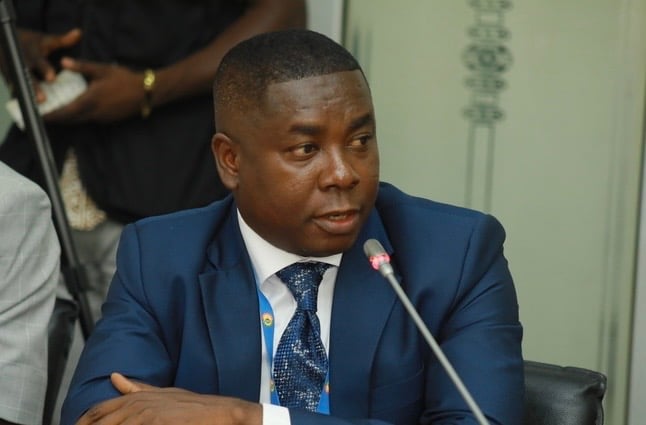The recent assertion by Dr. Gideon Boako, Member of Parliament for Tano North and a financial economist, regarding the previous New Patriotic Party (NPP) government’s successful restoration of Ghana’s economy to its pre-COVID-19 state has sparked a debate on the actual economic performance of the previous administration. Dr. Boako highlights a 5.7% growth rate and a record GDP exceeding one trillion cedis as key indicators of this economic recovery, achieved despite the global economic turmoil caused by the COVID-19 pandemic and the Russia-Ukraine war. This achievement, he argues, underscores the NPP’s effective economic management in navigating unprecedented global challenges. His statement comes as a direct response to the current National Democratic Congress (NDC) government’s acknowledgement of the global factors impacting Ghana’s economic struggles.
The crux of Dr. Boako’s argument rests on the impressive economic figures achieved before the NPP left office. He presents a compelling narrative of a resilient economy successfully steered back to stability after facing significant global headwinds. The 5.7% growth rate, in his view, signifies a robust recovery, while the unprecedented GDP of over a trillion cedis underlines the overall expansion of the Ghanaian economy under the NPP’s stewardship. He contends that these figures are not mere coincidences but rather testaments to the sound economic policies implemented by the previous government. This assertion implicitly challenges the current NDC government’s narrative on the state of the economy inherited from the NPP.
Adding further weight to his argument, Dr. Boako emphasizes the timing of these economic achievements. He underscores that the restoration to pre-COVID-19 levels occurred before the NPP left office, effectively absolving them, in his view, of responsibility for the current economic difficulties. This careful positioning aims to portray the NPP as leaving behind a healthy economy, subsequently impacted by external forces beyond their control. By highlighting the global context of the pandemic and the war, he reinforces the idea that these were extraordinary circumstances that any government would struggle to navigate.
The context of Dr. Boako’s statement is crucial. It comes on the heels of an admission by Ibrahim Murtala Mohammed, Minister of Environment, Science, Technology, and Innovation, acknowledging the impact of the COVID-19 pandemic and the Russia-Ukraine war on Ghana’s economy. This admission, according to Dr. Boako, represents a significant shift in the NDC’s narrative. He recalls the NDC’s previous skepticism regarding the NPP’s claims about the influence of these global events on Ghana’s economic performance. He now sees the Minister’s statement as a vindication of the NPP’s position, suggesting that the NDC has finally conceded the undeniable impact of these external factors.
Dr. Boako frames the Minister’s statement as a U-turn, suggesting the NDC had previously downplayed or even outright denied the severity of the global impact on Ghana’s economy. This perceived shift in the NDC’s position, he argues, serves to validate the NPP’s earlier assertions about the global factors contributing to economic hardship. He suggests that the NPP has been consistent in its messaging about the economic realities, while the NDC has only recently come to accept these truths. This narrative seeks to portray the NPP as more forthright and transparent in their assessment of the economic situation.
In essence, Dr. Boako’s argument revolves around a comparison of the NPP’s economic performance with the prevailing global economic conditions. He uses the growth rate and GDP figures as tangible evidence of successful economic management in the face of adversity. He contrasts this with what he perceives as the NDC’s evolving narrative on the impact of global events, ultimately framing the NPP as vindicated by the NDC’s recent admissions. This creates a narrative of the NPP as competent economic managers who successfully navigated challenging global circumstances, leaving behind a healthy economy before leaving office. The current economic difficulties, in this view, are primarily attributable to external factors beyond the control of the previous administration.


